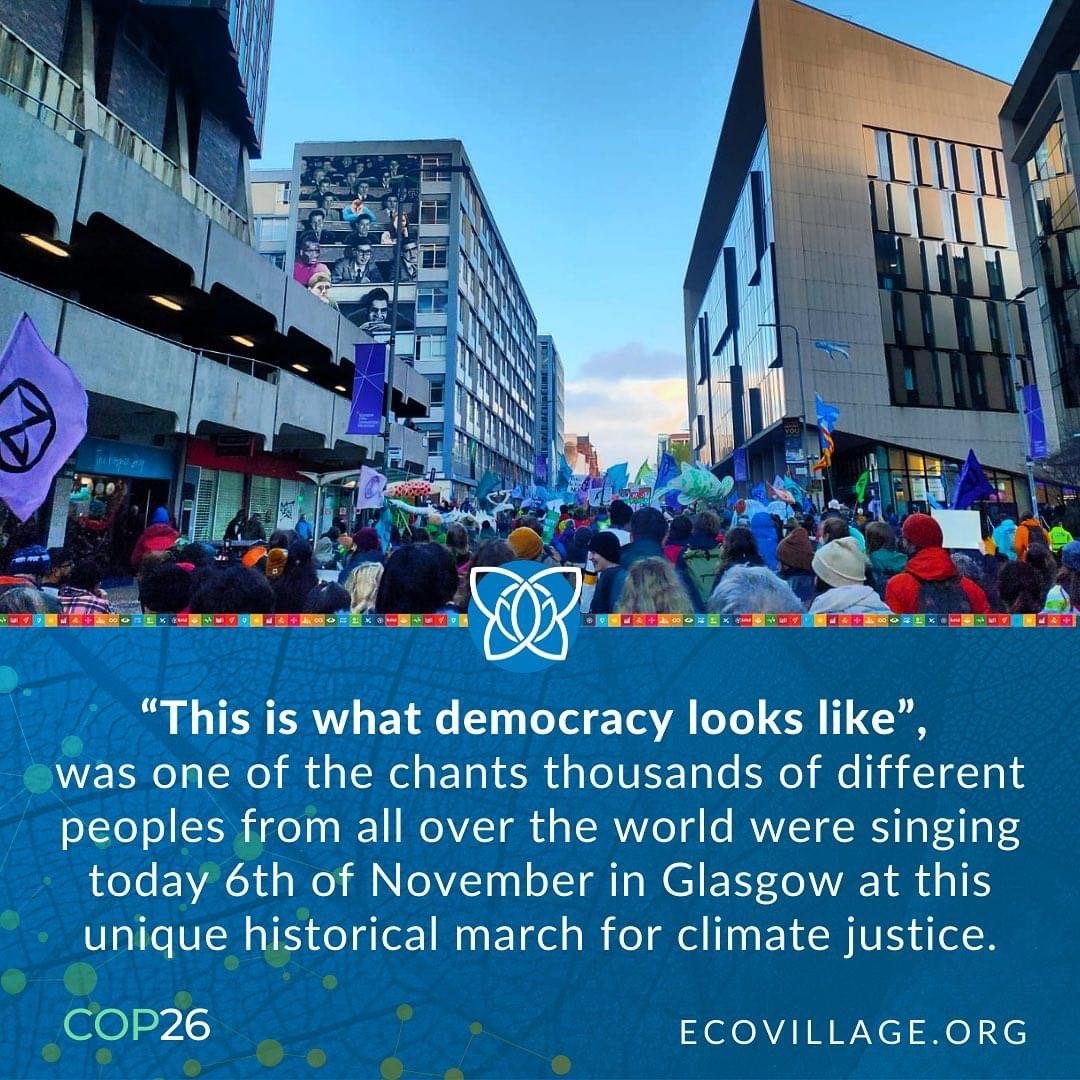Making the case for global eco-villages at COP26
In A/UK’s search for viable local self-government with a global connection - going under the title of cosmolocalism - the practice of eco-villages (see our archive) has been a continuing inspiration. We were delighted to see the Global Ecovillage Network establish a strong presence at the COP26 conference in Glasgow. From their press release:
Anna Kovasna, Lead Link of GEN International’s Coordination Circle said: “Local communities are demanding real change. The Global Ecovillage Network is an expression of this real change. More than 6,000 communities and ecovillages around the world – united – demanding that their voices are heard! We the people, on the ground, taking power over the future that we want to see and dedicating our lives to making that vision come true!”
This year, GEN is hosting a small – but representative – delegation with 7 community leaders from all of its 5 regions, including representatives from Brazil, Mozambique, Sweden, The Philippines, United States, Spain and the United Kingdom.
GEN’s main objectives at COP26 are to lift the voice of community-led initiatives and showcase ecovillage solutions for climate adaptation and mitigation, with examples of these are featured on GEN’s website at ecovillage.org/climate-solutions, as well as to reach out to governments, business representatives, and partners in order to scale up the work and impact of the ecovillages in the world. See Ecovillage’s Impact Assessment at ecovillage.org/impact.
“Today, GEN reaches out to over 6000 ecovillages and local communities in 114 countries, in Africa, Asia, Latin America, Europe and North America. We’re really diverse, from indigenous communities and traditional networks of villages in India and Senegal to intentional communities in the Global North,” Ms. Kovasna said.
“And what connects us is a community-led systemic perspective. We’re passionate about weaving together social, ecological, economic and cultural aspects of regeneration and understanding how they can strengthen each other and link as we redesign systems. We are present at the COP Conferences in order to influence decision-makers to increase support to community-led systemic responses to the Climate Emergency”.

